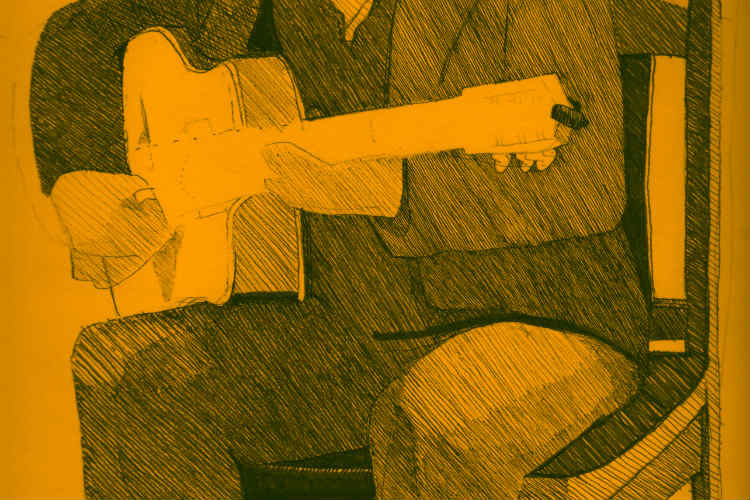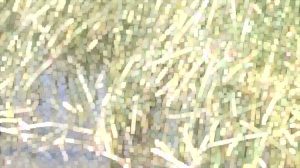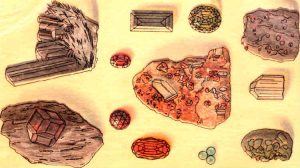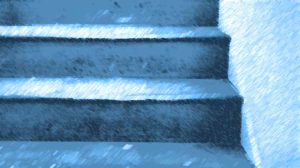
Summer, 2004
We had never gone away together, never taken a vacation. My mother had always been too busy cleaning houses, changing diapers, and dating worthless men. But she made time, one summer, for us to go somewhere, be somewhere and escape our day to day drudgery among cacti and overwhelming heat. It would be my mother, my five-year-old sister, and me. We were leaving for sunny Monterey and didn’t know when we’d be back. I hoped never.
I was fourteen going on fifteen.
She drove our new used rust colored Chevy Caprice 1988 station wagon for the first time that morning. I was excited to pack the wagon with everything I thought we’d ever need: bright colored tank tops, jean shorts, beach sweaters, beef jerky and Pepsi, books (I was engrossed in Stephen King’s The Dark Half), maxi pads (I expected my period) and music to get us by for weeks even though we’d be gone for almost one. My mother, thin and blonde, smiled her toothy grin as she buckled her seat belt. “Ready?” she had asked. I looked at our home, large and looming, removed from everyone and everything, surrounded by soft sand that always got stuck in my shoes, and nodded.
My sister, thin and blonde, like my mother, sat in the back with coloring books and crayons. She didn’t bother us. Wouldn’t bother us. I sat in the front with my collection of tapes. I had organized the music that week prior as if I was being graded by some god of music. I had wanted to impress my mother, impress anyone who would have heard John Lennon crooning while our windows were rolled down.
“Put that in,” my mother said, nodding toward my lap. He was sitting there. John. I took the cassette out of its case and put it in the tape deck. I can’t remember now the first song that we played, but at this moment I can hear the lyrics to John’s rendition of “Stand by Me” and remember how I told my mother it would be a good song to ice skate to, how it rocked and rolled, how it thumped and shook.
“For her,” I said, nodding towards my sister. “She could skate to this, it’d be perfect.” My sister couldn’t ice skate, had never seen an ice rink, but my mother and I would watch the ice skaters in the Olympics and imagine that my mother’s mini-me would one day skate on that ice and make us proud.
“Yeah,” she had smiled, “it’s a good one.”
The scenery all looked the same. I was used to the emptiness of the desert, to the blue sky that housed no clouds, just an overheating sun. And I was used to the freeways, to the dirtiness of the freeway cities, and to the brown filth that city people called sky. I was used to all of that.
I stared out the window, sang along to John while I imagined the moves that my sister would do. We talked about John, my mother and I. We talked about when he died and how wasn’t it weird that I was born the year he was killed and that maybe it meant something, maybe we were connected somehow, me and John, and that’s why I was so drawn to him and his music and his politics and how even I loved Yoko. My mother never made me feel stupid or obsessed or insane. She never corrected me, never told me that I was born two years after he was murdered.
“Yeah,” she said, staring ahead at an empty highway, “That’s a good point.”
I smiled and felt good inside, felt that my mother knew me, understood me. I turned my head and peered at the back seat. My sister had fallen asleep with a blue crayon held tightly in her little fingers.
We reached Bakersfield a day later. Yellow hills, too dry for grass, bordered us on that empty highway, freeway, whatever way that took us there. The windows were rolled way down, had been that way all day because the air conditioner broke the day before, hours after leaving Twentynine Palms. There was dry heat all around us, dry hills – it all made me thirsty.
“Can we stop?” I asked, nauseous.
“Sure, it’s time to eat.”
But there wasn’t anywhere to stop and there wouldn’t be for another thirty miles. We stopped at the first diner we saw. I rushed to the bathroom; my stomach had been hurting and I knew why. It was that time. “It’s my period,” I groaned, sitting at the plastic red booth. The sweaty undersides of my thighs stuck to the seat as I tried to make myself more comfortable.
“Sorry, hun,” my mother said, staring at me. “Maybe you should get a salad or some soup. Something light.” She brushed her blonde hair from her tanned face and then did the same to my sister. They had already ordered. Club sandwich and chicken fingers.
I tried to eat some vegetable soup but the tomato broth, red broth, whatever it was, made me think too much of the blood gushing between my legs and I had to think of good thoughts, of the Tejano singer, Selena, singing “Bidi Bidi Bum Bum” so that I wouldn’t spew my insides all over the table.
We got back on the road.
“We’ll stop in the city,” my mother said, “We’ll find a room and then you can take a hot bath.” She patted my thigh. My sister reached her arm over the front seat and handed me a thin piece of paper.
“Here, sissy,” she smiled. “For you.” She had colored a bear in a polka dot dress. She stayed in the lines; the brown, the purple, and the red never crossed paths.
Before we got a room, the car overheated.
“Turn on the heater,” my mother directed. I didn’t ask questions. Did as I was told. My insides felt like they were being sliced by Freddy Krueger, and the heat only made it worse. I was hot. In pain. Bleeding. Scared. I didn’t think we’d make it anywhere. John wasn’t singing anymore. I took him out once smoke began to billow from the engine.
“Where to stop? Where to stop?” my mother muttered. We passed Wal-Mart, K-mart, liquor stores and green trees that I had never seen and didn’t know what to call them. I still don’t.
“Henry’s!” she had said as if she’d discovered DNA. She was looking to her left. I followed her gaze and saw a mechanic’s shop. It said Henry’s in bright green lettering. The rest was dark and dirty, grease rubbed all over the building. Henry was old, maybe sixty-seven. He was tall, like a giant and had a gray, unruly beard that sprouted all over his face. Henry reminded me of my chemistry teacher, Mr. Cowdery. I thought them twins. My mother sent me across the busy street with my sister, her little fingers wrapped around my own.
“Visit that museum,” she said, slipping me ten dollars. I looked at the sign across from Henry’s. It was a museum, yes, but not one that I wanted to visit. It was an outside museum and it boasted the first houses, the first buildings that were in Bakersfield before it was Bakersfield. They were in prime condition, 18something-something style. There would be no air conditioning, no haven from the heat. We toured the houses, my sister and I. Had wanted to go inside but couldn’t, weren’t allowed to. We looked through the windows and studied the porcelain figures that someone had set up to look like the first citizens of Bakersfield.
“I wanna touch em!” she had cried, wrapping her little hands around the golden doorknob of the first dentist office.
“Let go!” I had yelled, my arms around her waist. She kicked and screamed. I offered her gum from the gift shop and she let go. I grew tired of seeing old houses with a five-year-old, so I took her outside of the entrance, where we sat on wet grass. At first she was all right, entertained enough with the paper dolls and gum that I bought. But it wasn’t long before she wanted our mother.
“I’m going!” she had pouted, running for the busy street. I ran after her, grabbed her, and told her that it was our job to stay where we were, to protect the people in those houses. This would stop her for ten, maybe eleven minutes, and then she would try again for the street. I could see all too clearly her mangled body, covered in blood, crushed beneath Toyotas and Fords. I saw that for an hour, two hours, maybe three. Saw that every time I raced after her.
The sun was no longer looming over us when our mother returned. It was cooler, my cramps had subsided, and the sky was gradually turning pink. My little sister saw her first, saw her cross the street and wave. “Look! Mom!” she had yelled, giddy with anticipation. She took off, her blonde hair bounced behind her.
I got to my feet and followed. “Hey guys,” my mother smiled, “Ready to go? I didn’t think he’d do it, but he did.”
“Did what?” I asked. I knew nothing of cars. Would never know anything of cars.
“The radiator – he fixed it. Had a big, gaping hole in it. All fixed now.” She smiled again and I took her hand.
Henry’s shop was still greasy and still dark. He was sitting on a red crate, playing with his massive beard. “Here’s my girls, the ones I was telling you about,” my mother said, pointing to us. I smiled awkwardly, could feel the side of my face twitch. My sister posed faithfully. Henry gave a warm smile and stood to shake our hands. I looked at the grease on his fat fingers and pondered whether I would be disrespectful or not. I shook his hand.
“I’d like to sing you ladies a song,” Henry said, motioning us to his office. We followed the giant to a small room, off in the corner, watched him duck his head as he entered. He pulled up a worn out wooden chair that squeaked as he sat. “Ladies,” he said, an acoustic guitar in his hands, “have a seat.”
I stood in the doorway and watched and listened. Observed every movement he made, every note he uttered. He lightly strummed the guitar and began to sing of a lady in a green dress. And as he sang I didn’t see an old man on an old chair, and I didn’t see myself standing in a hot, stuffy room. I saw an older gentleman sitting on a park bench in the middle of spring with daisies in his hands, asking the lady in the green dress who sat beside him if she’d like to go out for dinner sometime. When Henry finished, we all clapped and smiled, cooed how good it was. Well, my sister and my mother did that, but I did smile and I did clap. Henry wiped his eyes.
We left Bakersfield in the morning. And she couldn’t stop talking about Henry, how sweet his song was. “Wouldn’t that be it?” my mother asked, looking at me.
“Be what?”
“Everything. Henry’s the sweetest guy I’ve ever met.” Then she looked ahead, continued driving, and didn’t say anything more until we reached Monterey.
We went on our journey. We went along the water, along Pacific Coast Highway. We shivered at the ocean breeze (the desert heat had spoiled us), we laughed at the seagulls and how they crapped on rich peoples’ cars, we collected rocks and seashells, got sand in our underwear, in between our toes, wore sweaters while we sunbathed, while we read books under the sun, and ate bean burritos at Taco Bell because that’s what my mother did when she was fourteen going on fifteen at the beach.
I played Marvin Gaye on our way home. I sang along to every song, pictured my sister skating to “I Heard it Through the Grapevine” and “Inner City Blues.” She sat in the back, drank all the Pepsi, colored more pictures of bears in dresses, and ordered every seven minutes that we stop so she could pee. I wanted to savor those moments, driving in and out of tight curves, seeing so much green that I swore my sister had been there earlier with her crayons. I treasured being cold at the beach, even though it was summer, and I treasured sitting in that big hulk of a car, listening to my mother hum with Marvin and talk about the time she was seventeen and camped at some beach with marshmallows and pot because that’s what kids did then. Maybe they still do, she had said.
The journey home was short. We pulled into the desert, into Twentynine Palms, and passed everything we knew, the Stater Brothers store, the Circle K, Lucky Park, and rode to our home, separated from the town and the rest of the world.
“I think I’ll send him a postcard, ” my mother whispered, unbuckling her seat belt.
“Who?” I asked, unbuckling mine.
“You know, Henry. He’d love this place,” she said. She studied the desert, the burnt weeds, the thirsty cottonwood trees, all two of them. I nodded because I didn’t know what else to do. My sister sprung up from her slumber, rubbed her eyes, and jumped out of the car.
That was our trip, our time. My sister, now twelve, doesn’t remember, will never remember. But she likes to tell the story of the fake people in the nice houses, of being awed by Henry and his guitar – all the things that I’ve told her. My mother still has that station wagon. Still drives it. Everyday. Everywhere. The air conditioner still doesn’t work and the windows are never rolled down because they can never be rolled back up. We’ve talked about going other places, my mother and I. And sometimes to the same places, maybe see Henry – but we never make plans. Never say definite yes or no. We never have the time. She’s busy doing hair, going to college and dating worthless men. I’m busy going to college. We’re both too busy now. But there are days, nights – when I think of that summer, fourteen going on fifteen. I see my mother, smiling and tanned, clapping her hands as Henry sings, clapping her hands as if he’s the only thing left in the world to clap for. And I wonder if she ever claps like that anymore.





Donna Jaffe says
I was very moved by “Eating Together” I wanted to give her a hug.
Yula Flournoy says
You pegged your mom and mimi-me. The party at the beach was your mom’s 16th birthday.
Michelle Bergey says
What a terrific story. I can see every bit of it. You are a very talented writer.
Sam Silva says
I love it…what a story!
Charles L. says
I always enjoy reading works from Michelle. Her piece entitled “Me without You” is equally moving. I look forward to reading future works from her. Bravo. :)